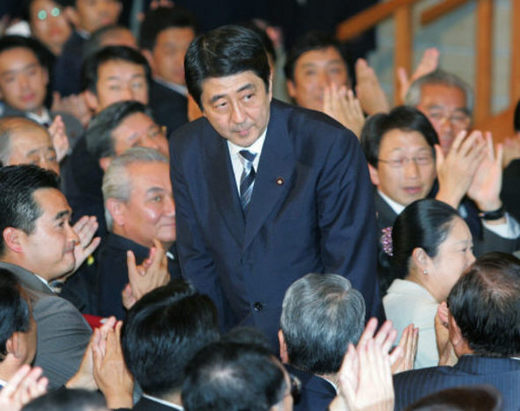 |
In contrast, moderate conservatives of the LDP revealed their ineffectiveness in holding their ground in the party. And since the withdrawal of Abe’s competitor Yasuo Fukuda from the race, they lost a central figure necessary for collecting support. Not only neighboring countries but also influential Western newspapers such as the New York Times and the Washington Post have expressed concerns about Abe’s ascension, evaluating him as a strict right-wing nationalist. In a column published in the Tokyo Shimbun, Ronald Dore, a senior research fellow at the London School of Economics and Political Science, conveyed the worries of the international community by saying that the world is paying more attention to Abe’s ideological attitude than his policies. The opening of the Abe era is meaningful in that Japan will really get down to abandoning "post-war pacifism," which has been part of the national makeup for the past 60 years. To this end, Abe’s top priority is to revise Japan’s "Peace Constitution" as Japan’s first step in returning to itself full military rights. Abe is also on a campaign to rewrite educational guidelines along nationalist lines. Those who support peace in Japan have resolved to concentrate their energy in stopping the constitutional revision. Clashes between the two political sides are unavoidable. The constitutional amendment requires two-thirds approval by lawmakers, so Abe is expected to lead a large-scale political reshuffle. Abe advocates a "demanding diplomacy," meaning he will clearly express his views in matters of foreign relations, national security, or Japanese territorial claims. He will more explicitly strengthen the alliance Japan has with the U.S. against North Korea and China. In consequence, the conflicts Japan has with its neighbors will become more serious. Abe, however, indicates that he will try to improve relationships with the neighboring countries by lowering his voice over the problem of history, which is the biggest issue East Asia currently faces. This is why Abe has maintained an "ambiguous strategy," not clarifying his position over the Yasukuni Shrine or Japan’s role during World War II.






